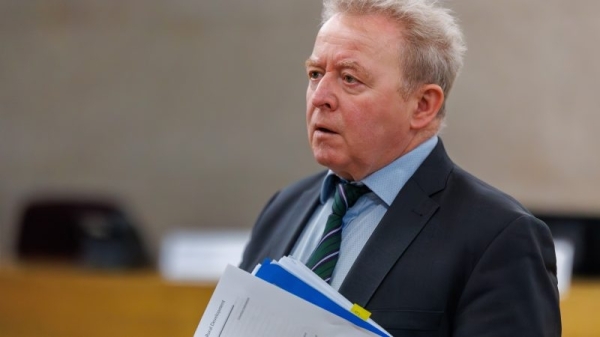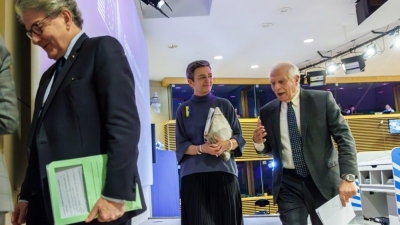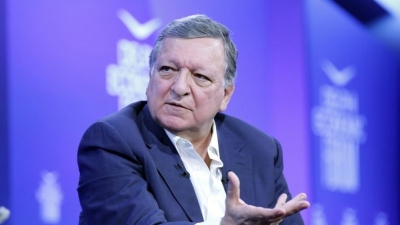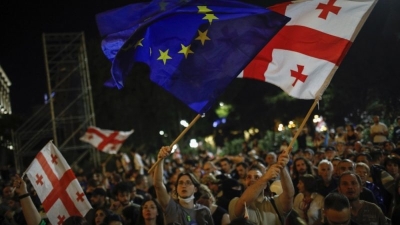EU commissioner says Russian imports to Poland ‘negligible’ amid grain row

As Poland considers following in Latvia’s footsteps by banning agricultural imports from Russia that it says are destabilising the Polish market, EU Agriculture Commissioner Janusz Wojciechowski stepped in to deny that Russian grain imports to the Eastern European country are significant.
“Imports of grain from Russia to Poland are negligible,” Wojciechowski said on X on Tuesday (5 March), adding that the biggest importers in the EU were Italy, Latvia, Spain, and Greece.
His words came as several Eastern European states lashed out against grain from Russia, claiming it was flooding their markets.
Grain imports from Ukraine and, particularly in the Baltic countries, from Russia have fueled Eastern European farmers’ protests in recent months.
After Latvia approved a ban on agricultural imports from Russia and Belarus on 22 February, Polish Prime Minister Donald Tusk announced a week later that his government would “carefully study” the decision and would not rule out “taking appropriate steps”.
Speaking at a press conference in Vilnius on Monday (4 March) with his Lithuanian counterpart Ingrida Szimonyte, Tusk said he would push the European Commission to introduce sanctions on Russian and Belarusian agricultural products.
“I am convinced that a common decision will be incomparably more effective than individual decisions of the countries of the region,” he added.
Lithuania was the latest country to join the debate, with Agriculture Minister Kęstutis Navickas saying on Tuesday that while introducing a unilateral ban on Russian grain in Lithuania would risk violating international agreements, he would support such a measure being introduced at the European level.
Several members of parliament in Vilnius are pushing for a unilateral ban. “We [would] help our own market, and we [would] also help the Poles,” the chairman of the rural affairs committee said in the national Parliament.
Ukraine grain
As the EU moves to extend trade liberalisation with Ukraine, Polish farmers continue to protest against food imports from Ukraine, which they blame for disrupting the agricultural market.
The EU temporarily lifted restrictions on imports from Kyiv in June 2022, following Russia’s invasion of the country, which led to an influx of Ukrainian goods into the bloc and pushed prices down, especially in frontline countries – Hungary, Poland, Slovakia, and Romania.
A vote on the renewal of trade benefits will take place on Thursday in the European Parliament’s trade committee (INTA).
Meanwhile, Warsaw is in talks with Kyiv to tackle tensions on the Polish-Ukrainian border, where Polish farmers have staged blockades and dumped Ukrainian grain in the past weeks.
On 1 March, Polish farmers opened another front and caused disruption at the border with Lithuania, accompanying Polish inspectors who checked lorries entering Poland to ensure they were not carrying Ukrainian grain.

EU and Ukrainian farmers at odds on renewal of trade benefits for Kyiv
EU farmers’ organisations welcomed a vote in the European Parliament’s Agriculture Committee calling for more safeguards against food imports in the context of a recent Commission proposal for renewing trade liberalisation measures for Ukraine.
Read more with Euractiv




